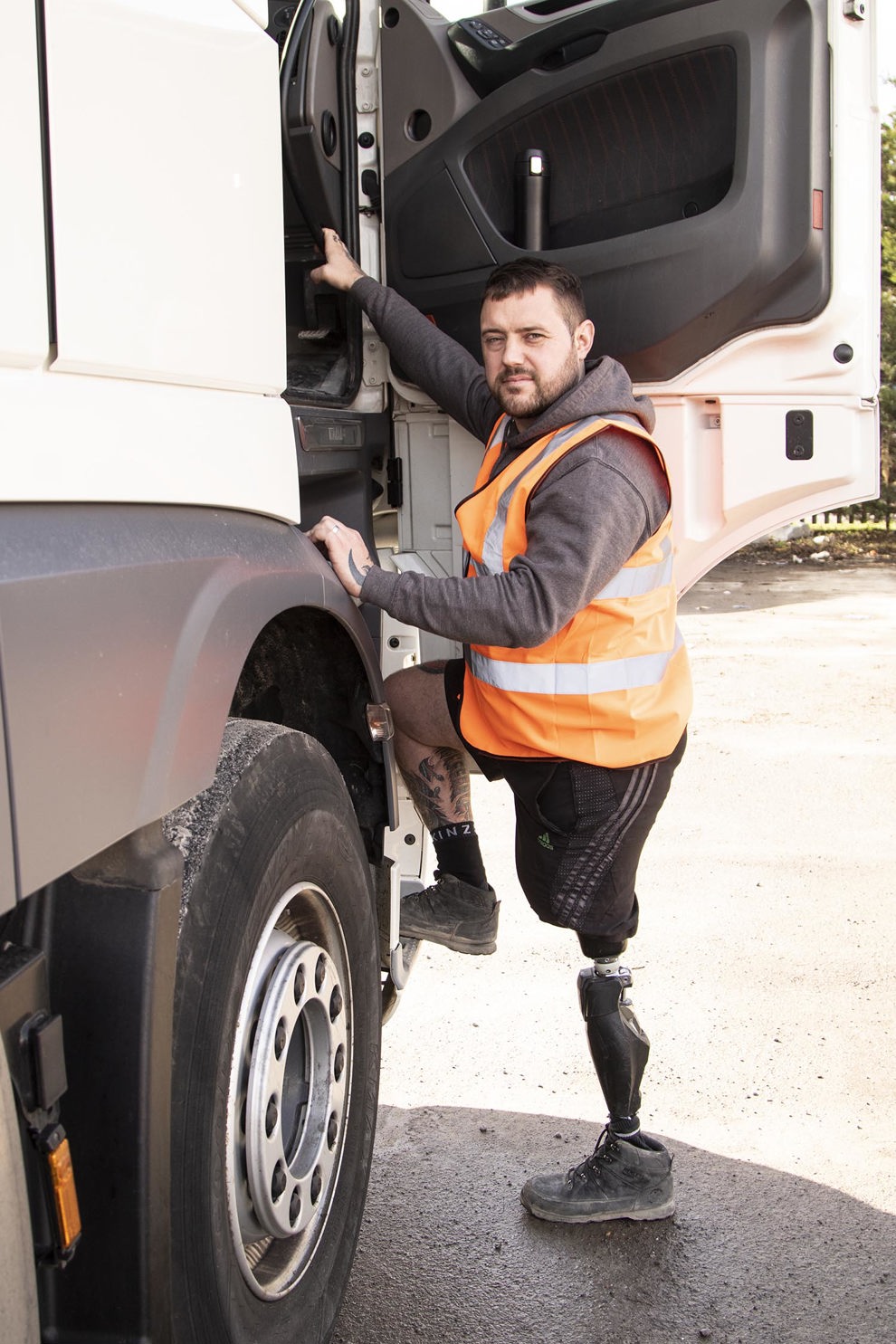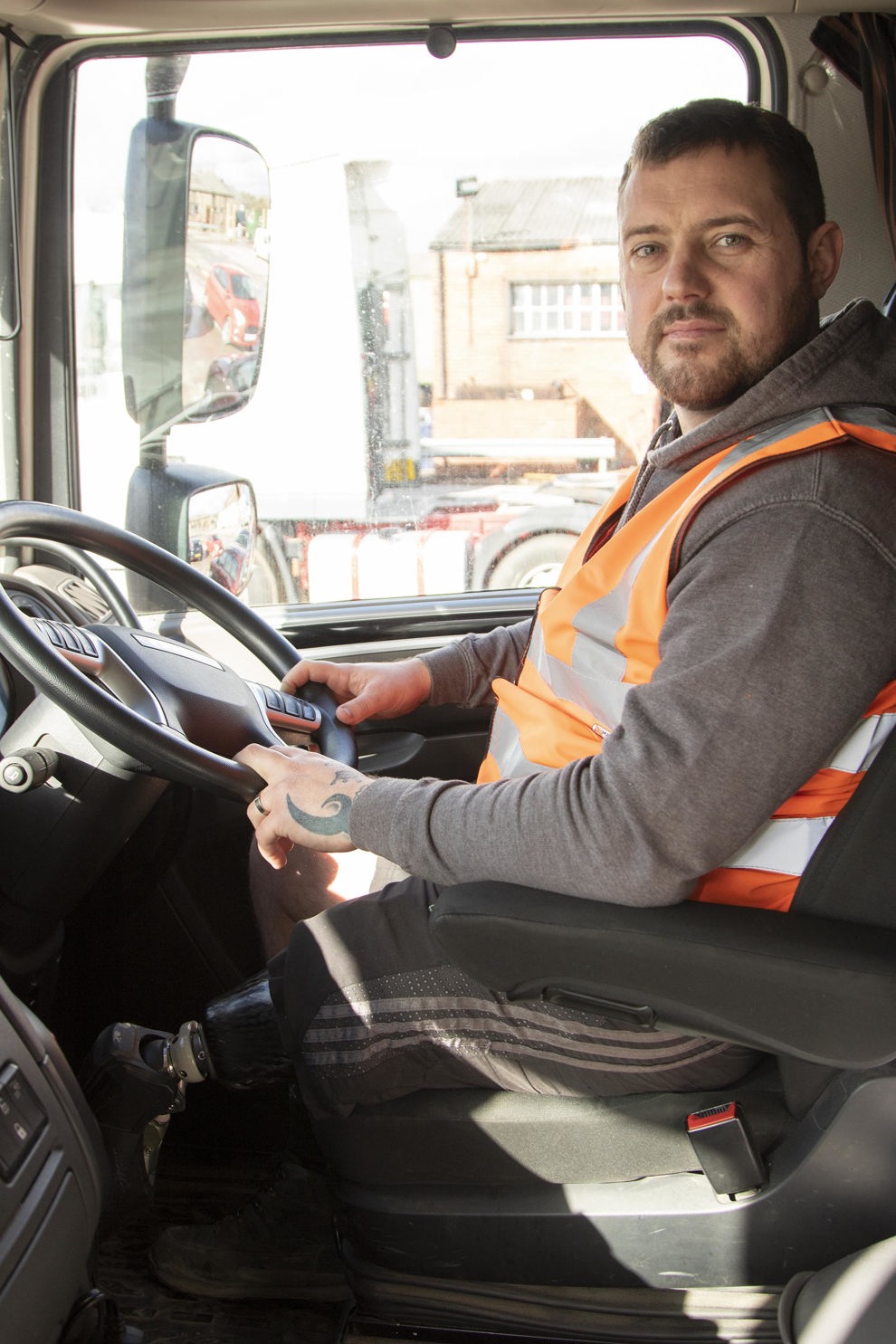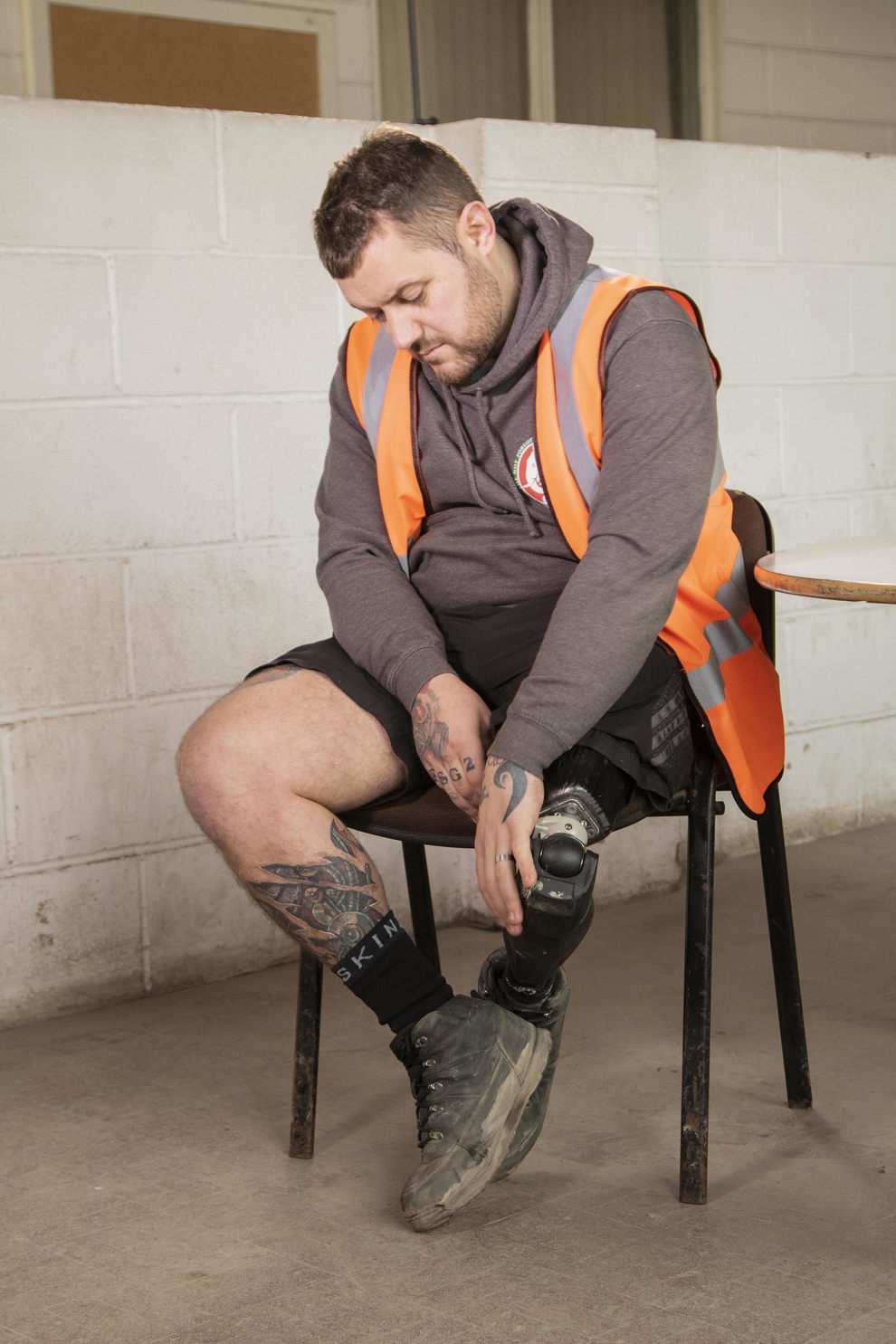After Dale Leach was injured on operations in Afghanistan, he faced a quandary that will be familiar to many Blesma Members. With his military career cruelly cut short, and dealing with the physical and mental difficulties of amputation, what was he going to do next?
“I was discharged from the Army at the end of 2013, and for a while I would just sit around the house, not knowing what to do with myself,” remembers Dale.
“I was a mess; some days I wouldn’t even leave my room. My mum was in my ear telling me to look for a job, but I didn’t know where to go. I just stayed inside.”
Blesma’s mission statement is to help veterans live independent and fulfilling lives, often by providing them with challenges and adventure. In Dale’s case, something more straightforward was required to get him feeling positive again: employment.
“My mum was getting really worried about me, and I realised that I needed to pull myself together,” Dale admits. “It was around this time that I spoke with my Support Officer Tom Hall, who offered to help and put me in touch
with The Poppy Factory; a charity that helps veterans back into work. Together, they helped me to get my Class 1 driving licence, and now I’m an HGV driver.”
Dale, from Barry Island in Wales, has come a long way since his injury, which saw him on the brink of death in Afghanistan in 2009. “I joined the Welsh Guards in 2003 at the age of 16, and deployed to Iraq, Belize and Bosnia,” he says. “But I was injured soon after going to Afghanistan. We’d carried out a foot patrol to take over a compound one night, and the next day we went out to give fire support in the Jackals. That was when we drove over an Improvised Explosive Device (IED).

“I was up top as a Gunner and was blown out of the vehicle. My only memory is from the day before, playing volleyball in the base, but one of the boys captured the whole thing on a camera mounted to his helmet. It’s strange to watch the video because the first five minutes of footage is just the dust clearing.
“We were parked on the IED for a few seconds and when we moved, it went off. I was blown upwards and my leg was caught between the gun mount and the gun. It was taken straight off, pretty high up. On the film, the boys are trying to get to me, but they’re still getting shot at. You can hear them talking about going to get my leg. I was conscious and apparently said that I didn’t want morphine, and to give it to the lad who was next to me. But once I had that, I was out of it.”

Dale’s cousin, also a soldier, was flown in to see him because the medics weren’t sure if he would make it back from Camp Bastion to the UK alive. “They were actually brushing my teeth so that I didn’t look so bad when my parents saw me!” remembers Dale. After six weeks in a coma in Queen Elizabeth Hospital in Birmingham, Dale regained consciousness in the ambulance on the way to Selly Oak. “The guys in the back wouldn’t tell me what had happened – they said they’d let my parents tell me,” says Dale. “I had about four inches of my left leg remaining, my right heel had been shattered and had needed to be pinned, I’d broken my back in three places, both of my lungs had collapsed, and I’d fractured my skull.”
MAKING THE DECISION TO GET ON WITH THINGS
Dale spent much of his rehab bouncing between trying to stay positive and feeling utterly bewildered. “When I woke up from the coma, it didn’t really hit me what had happened, and with all the medication I was on, I was all over the place,” he says. “But I have a strong mind and eventually decided that I had to get on with things. I came to realise that I was lucky to be alive. Headley Court was amazing – and I met some of my best friends there – but I had absolutely no idea what to do with my life after I had been discharged.”
Discussions with his Support Officer changed all that – especially when Blesma offered to pay for Dale to get some new qualifications – and he was referred to an employability consultant to discuss his best options.
“I had been a mechanic before joining the Army and had thought about doing that again, but being under a vehicle all day wouldn’t have been good for my back,” he says. “So I thought about driving. I’m obsessed with cars anyway, so getting a job driving an HGV seemed to make sense. They’re all automatic these days, so my injury wouldn’t affect being able to drive.

“I got my Category C licence through the Army, but lost it after sustaining my head injury so I had to pass that again. Blesma and The Poppy Factory got me through it all. The training was great; I did four days of driving, and on the fifth day I took my test. I passed with flying colours – it was a really good feeling!”
Dale has been on the road for a year-and-a-half now, mainly transporting goods across the Midlands for supermarkets. “It’s been good for me mentally; it’s given me something to do and got me out of the house,” he says. “It has also cleared my head and meant that I’ve not been worrying about silly things.”
Dale is now happy and settled: a dad of three young boys, he does school runs and cooks their meals in between work. He’s also a keen kart racer and is hoping to get involved in motor racing through Blesma soon. He’s been on a Blesma canoe trip to France and the Association has helped with modifications to his house, so he understands the benefits Blesma can bring and stresses that, for any other Member finding themselves in his position, the key is to talk.
“Chat to Blesma and chat to your Support Officer,” he says. “I used to bottle things up, but talking about my problems and worries with my BSO sorted me out. They understand and can help. There’s so much more to life than sitting around the house!”
We can help
We are dedicated to assisting serving and ex-Service men and women who have suffered life-changing limb loss or the use of a limb, an eye or sight. We support these men and women in their communities throughout the UK. Click the link below to find out the different kinds of support we offer.
Get Support
Leave a comment
Join fellow Members and supporters to exchange information, advice and tips. Before commenting please read our terms of use for commenting on articles.